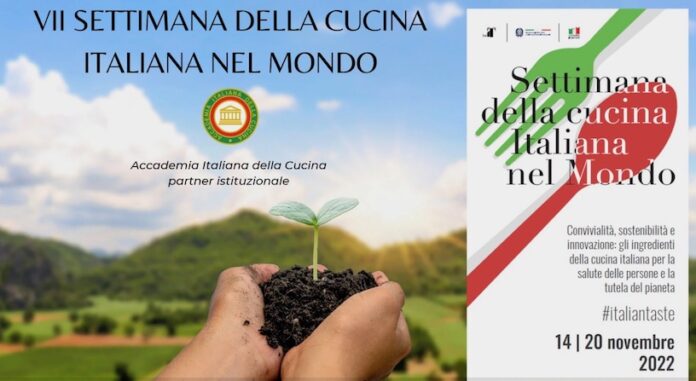“Conviviality, Sustainability and Innovation”
Edited by Anna Popper
As is well known, eating together at a convivial table remains an important pillar of Italian sociability. Food plays a great part in the Italian lifestyle and represents a great expression of Italian culture to enjoy good food and socialise anytime.
The 7th edition of the Week of Italian Cuisine in the World has been celebrated in Budapest from 14 to 20 November 2022, organised by the Italian Embassy, ICE – Italian Trade Agency, Italian Cultural Institute, Italian Academy of Culinary Arts, Budapest Delegation. From 2016 to date, this initiative has hosted more than 8000 events with the aim of presenting the best of the Italian food industry to the world and promoting Italy’s wine, gastronomic and hospitality heritage.


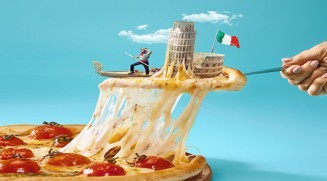
This year’s edition is dedicated to “Conviviality, Sustainability and Innovation: the ingredients of Italian cuisine for people’s health and the protection of the planet”, emphasising the precious time spent together, the healthy and sustainable Italian diet, the innovation based on the countryside, importance of the products and their creators, the skills and traditional ties that make the unique Italian craftsmanship an example for the world, in the green spirit.



The event’s press conference was held in the presence of the Ambassador of Italy to Hungary, H.E. Manuel Jacoangeli, the new Director of ICE – Italian Trade Agency, Ms. Giovanna Chiappini Carpena, the Director of the Italian Cultural Institute Budapest, Mr. Gabriele La Posta and the General Delegate of the Italian Academy of Culinary Arts, Mr. Michele Fasciano, at Trattoria Pomo D’Oro, hosted by the owner Gianni Annoni, Hungary’s best-known Italian chef. He spoke about the “fake ingredients” on the market, therefore the originality of ingredients used in Italian cuisine must be protected, and the aim should be exclusively quality gastronomy. There is no need to “complicate” the food, because “the raw material is everything”. He also noted: food should travel as little as possible, people should rather travel to taste and enjoy it.




Ambassador Jacoangeli introduced the festival’s program, which represents the richness of Italian gastronomic traditions through cooking shows, screenings, lectures, master-class workshops and other online and in-person programs. He highlighted the health and prevention of diseases through the Mediterranean diet, the outstanding products with protected and controlled designations, the principles of the Italian food labelling system.

Mr. Michele Fasciano stressed: the event pays special attention to the fight against counterfeiting of Italian brands and products in the food sector with protected origin and to raising awareness of public opinion regarding the “Italian sounding” phenomenon, to fake goods labelled as Italian.

Mr. Gabriele La Posta noted that Italy is known to be very rich in local and regional cuisine, due to the diverse geographical and climatic characteristics and local traditions. The fact that different regions can boast of different local food specialties not only depends on the available ingredients, but also largely on the fact that residents everywhere faithfully keep their family recipes, adhere to local customs and local products, of which they are naturally very proud. That is why there is no truly unified Italian cuisine, but local and regional cuisines throughout Italy.



This festival gives special attention to Roman cuisine to support the candidacy of the city of Rome to host the ROME EXPO 2030 and also focusing on the Italian confectionery. The cultural institute organised a screening of the documentary Florence, Central Market, followed by a tasting of Tuscan dishes and wines, curated by Chef Mario Palermo of the Budapest based “Toscana” Restaurant.
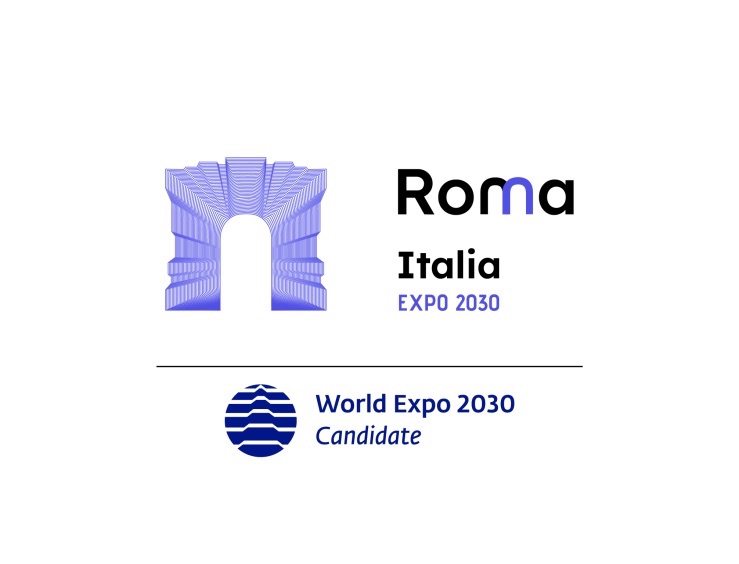
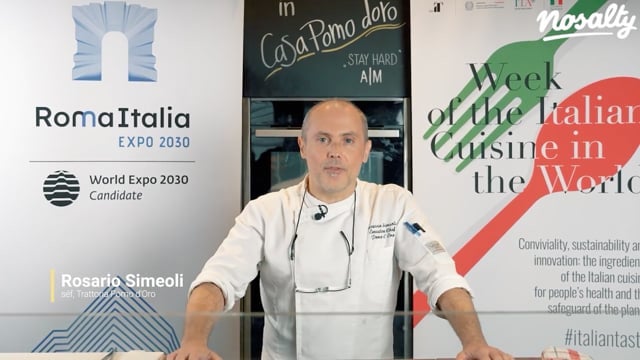
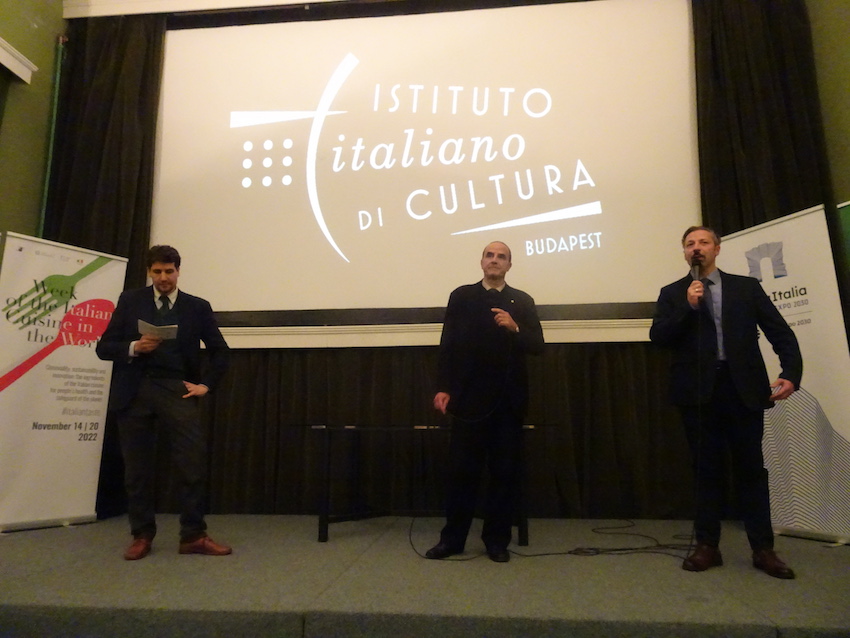
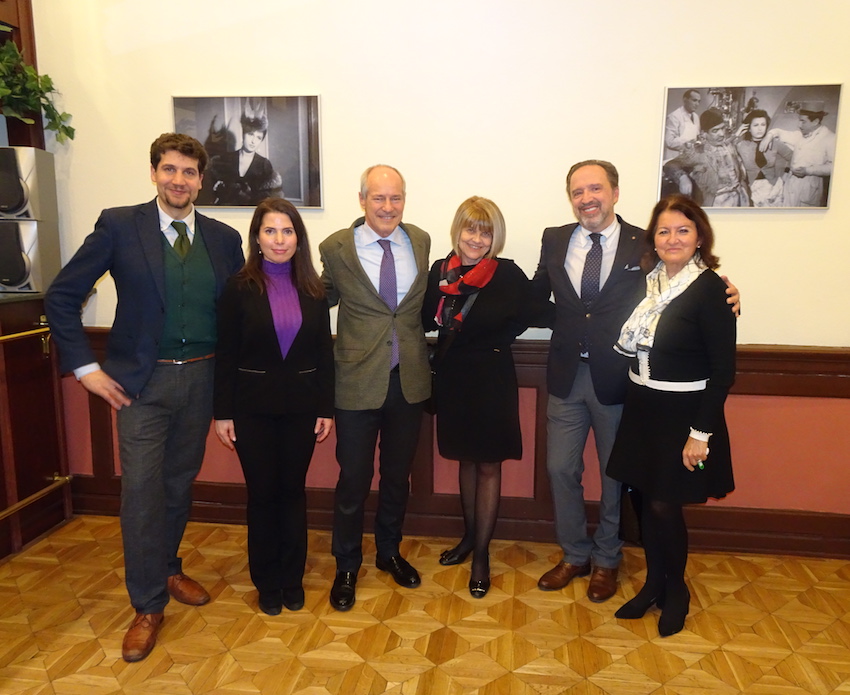
The entire program of the World Week of Italian Cuisine and the participating Italian restaurants in Budapest can be found on the website: www.italianfestival.eu

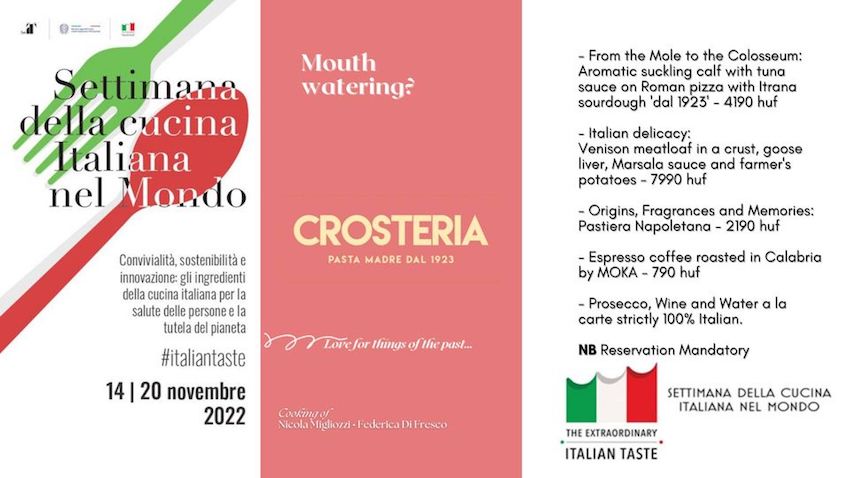
Source: Italian Embassy





